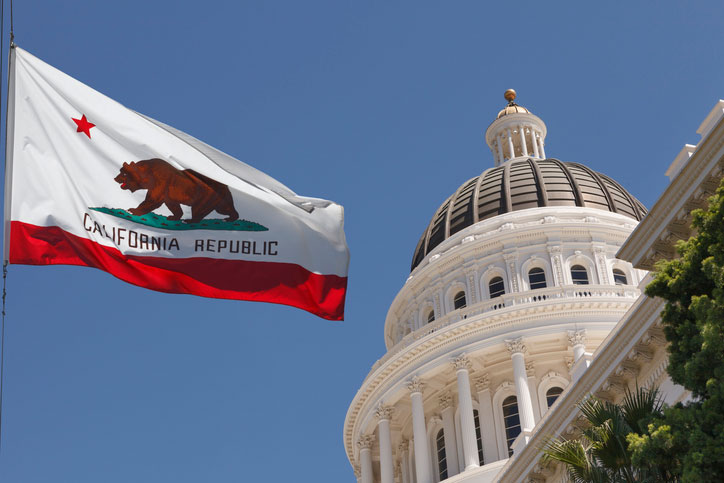Written by Helen Lewis
A Doctor of Nursing Practice (DNP) is the highest level of qualification in practical nursing.
In this field, nurses are equipped with senior-level skills in clinical practice and leadership. DNPs are primarily focused on applying their skills directly with patients in healthcare settings. By contrast, nurses with PhDs in nursing tend to apply their skills in research and educational settings.
While registered nurses (RNs) provide critical services like inserting and managing IV lines, drawing blood, performing catheterizations, monitoring vital signs (like heart rate, temperature, and blood pressure), and dressing wounds, DNPs take on more advanced and more managerial roles, like mentoring and educating nursing staff, prescribing medications and therapies, performing more advanced procedures (like anesthesia, minor surgical procedures, and advanced wound care), providing expert consultations, managing budgets and resources, and serving as a faculty member in nursing education programs.
An Average Day of Work as a DNP in California
As you can see, work as a DNP can take many forms. Qualified DNPs can take on roles like:
- Nurse Practitioner (NP)
- Nurse Midwife (CNM)
- Palliative Care Specialist
- Healthcare Administrator
- Telehealth Nurse Practitioner
- Consultant in Healthcare Systems
Below, we’ll take a look at three different possible roles for DNPs, considering what an average workday might entail.
Average Day 1: Nurse Practitioner
An average day for a Doctor of Nursing Practice (DNP) working as a nurse practitioner typically begins early in the morning. The day could start with reviewing patient charts and preparing for appointments. This involves updating medical records, reviewing lab results, and planning treatment strategies for patients scheduled to visit that day. The DNP also takes time to coordinate with other healthcare providers, ensuring a cohesive approach to patient care.
By mid-morning, the DNP is seeing patients in a clinical setting. Patient appointments can include a wide range of services, from routine check-ups and managing chronic conditions to diagnosing and treating acute illnesses. The DNP conducts thorough assessments, orders and interprets diagnostic tests, and develops treatment plans. This part of the day is highly interactive and requires strong clinical skills, patient communication, and the ability to make quick, informed decisions. The DNP also provides education and counseling to patients on health maintenance and disease prevention.
The afternoon often involves follow-up tasks and additional patient care. The DNP might spend time on administrative duties such as updating patient records, writing prescriptions, and completing insurance paperwork. There may also be time dedicated to professional development, staying current with medical research, and attending continuing education courses. The day usually wraps up with a final review of patient notes and planning for the next day’s appointments. While the official workday might end by early evening, the commitment to patient care often means addressing any urgent issues that arise outside of scheduled hours.

Average Day 2: Academic Faculty or Professor
An average day for a DNP who primarily works as an educator for nursing students in the university context could start with preparation and planning, which involves reviewing schedules, organizing lecture materials, and preparing instructional aids such as PowerPoint presentations. This time is crucial for ensuring that the day’s teaching activities run smoothly and effectively.
By mid-morning, the DNP is usually engaged in teaching and lecturing. Classes may be conducted in person or virtually, where the educator delivers lectures, facilitates discussions, and interacts with students. This part of the day is highly interactive, requiring the DNP to be responsive to student questions and provide clear, engaging instruction. If the program includes practical components, the DNP might also spend time in a lab setting, offering hands-on demonstrations or simulations to enhance student learning.
The afternoon is often dedicated to office hours, administrative duties, and meetings. The DNP meets with students one-on-one to discuss their progress, address concerns, and offer additional support. Administrative tasks include grading assignments, updating course materials, and attending faculty meetings to discuss curriculum development and program improvements. The day may also involve professional development activities, such as staying current with nursing research and best practices to continually enhance their teaching methods. The workday typically wraps up by late afternoon, but the commitment to student success often extends beyond these hours.
While a DNP in this context may not be working directly within the healthcare system, these DNPs nonetheless serve a vital role in educating the next generation of healthcare professionals who are qualified to take on important tasks within the medical field.
Average Day 3: Nurse Anesthetist
An average day for a Doctor of Nursing Practice (DNP) starts with reviewing the surgery schedule and patient charts, assessing preoperative evaluations, and ensuring that all necessary equipment and medications are prepared. This preparation is crucial for the safe administration of anesthesia. The DNP meets with surgical teams to discuss each patient’s medical history and anesthesia plan, ensuring everyone is on the same page for the procedures ahead.
By mid-morning, the DNP is actively involved in administering anesthesia for surgeries. This involves a variety of tasks such as inserting intravenous lines, monitoring patients’ vital signs, and adjusting anesthesia levels as needed during the procedure. The nurse anesthetist must be highly focused and responsive, managing any complications that arise and ensuring the patient’s stability throughout the surgery. Between procedures, the DNP checks on recovering patients in the post-anesthesia care unit (PACU), making sure they are comfortable and addressing any immediate post-operative needs.
The afternoon typically continues with additional surgeries or other procedures requiring anesthesia, such as pain management interventions. The workday usually concludes in the late afternoon or early evening, but the responsibility of being on call for emergencies means the DNP must be ready to respond to urgent situations as needed.
Healthcare in California
California is home to some of the top hospitals and medical research centers in the country, like Stanford Health Care and UCLA Medical Center: in other words, institutions at the cutting edge of medical research and technology. As a patient or a prospective employee, you’ll find world-class specialists and advanced treatments here, making California a go-to spot for high-quality healthcare. But, with all this excellence comes a hefty price tag, and healthcare costs can be pretty high.

California is also known for its efforts to make healthcare accessible to everyone. The state has embraced the Affordable Care Act, expanding Medi-Cal to cover millions of low-income residents. There are lots of community clinics and health programs aimed at providing care to underserved populations. Plus, California is a leader in progressive health policies, like protections for reproductive health and access to mental health services.
But, like anywhere, there are bumps in the road. California’s healthcare system can be a bit of a maze, with long wait times and overcrowded emergency rooms, especially in more populated areas. Rural areas often face their own set of challenges, with fewer healthcare providers and facilities.
The state is constantly working to improve, though, with initiatives to increase healthcare workforce, enhance telehealth services, and address public health issues like homelessness and substance abuse.
Is the Healthcare System in California Different Depending on Which Part of the State You’re in?
In urban areas like Los Angeles, San Francisco, and San Diego, you have access to some of the best hospitals and medical centers in the country. However, high demand can mean many hours in waiting rooms and higher costs for patients seeking care.
On the other hand, healthcare in rural California looks quite different. There are fewer hospitals and specialists, and you might have to travel long distances to see a doctor. Rural areas often face a shortage of healthcare providers, which can lead to a shortage of available appointments and less access to advanced medical treatments.
The state is working hard to address these disparities. Efforts include expanding telehealth services, increasing funding for rural health clinics, and offering incentives to attract healthcare professionals to less populated areas.
What’s the Difference Between a DNP and an RN?
A Doctor of Nursing Practice (DNP) and a Registered Nurse (RN) play crucial roles in healthcare, but their responsibilities, education, and scope of practice are quite different.
An RN typically has an associate or bachelor’s degree in nursing and provides direct patient care. This includes tasks like administering medications, monitoring patient conditions, and collaborating with doctors and other healthcare professionals to implement treatment plans. RNs are essential in delivering hands-on care and ensuring patients’ immediate health needs are met.
On the other hand, a DNP is a much higher level of nursing education, often requiring several additional years of schooling beyond the RN level. DNPs are trained not only in advanced clinical skills but also in areas like healthcare policy, leadership, and systems management. This means they often take on more complex clinical roles, make high-level healthcare decisions, and lead quality improvement initiatives. DNPs might also be involved in educating future nurses and conducting research to improve patient care practices. (For more on what this might entail, see the above section, “An Average Day of Work as a DNP in California.”) Essentially, while RNs focus on providing direct patient care, DNPs are more involved in the broader aspects of healthcare management and innovation.
Is A DNP the Same as a Nurse Practitioner?
Yes, there is a difference between a Nurse Practitioner (NP) and a Doctor of Nursing Practice (DNP), though they are related roles within the nursing field: while a DNP can be a nurse practitioner, not all DNPs are nurse practitioners.
A Nurse Practitioner (NP) is an advanced practice registered nurse (APRN) who has completed either a Master of Science in Nursing (MSN) or a DNP. NPs are trained to diagnose and treat medical conditions, prescribe medications, and provide high-quality patient care. They often specialize in areas such as family practice, pediatrics, geriatrics, or psychiatric-mental health. To become an NP, one must complete a specialized educational program and obtain certification in their chosen area of practice.
A Doctor of Nursing Practice (DNP), on the other hand, is a terminal degree in nursing that focuses on clinical practice rather than research. While some NPs may hold a DNP, the DNP degree itself represents the highest level of practical training in nursing. DNP programs include advanced coursework in leadership, healthcare policy, and evidence-based practice, preparing graduates for roles in clinical practice, administration, and education. Essentially, while all DNPs can be NPs if they choose a clinical track, not all NPs hold a DNP degree; many may have only completed an MSN program.
In summary, while an NP is a role that requires advanced clinical training and certification, a DNP is a degree that signifies the highest level of education in nursing practice, encompassing a broader scope of training in leadership and healthcare systems beyond just clinical skills. (For more on what a day of work as an NP can look like, see the above section, “An Average Day of Work As A DNP In California.”)
Can A DNP Be Called “Doctor” in California?
In California, a Doctor of Nursing Practice (DNP) can technically be referred to as “doctor” due to their doctoral-level education. However, state laws impose restrictions on this usage in clinical settings to prevent confusion among patients who might mistake a DNP for a medical doctor (MD). For example, California law generally prohibits DNPs from using the title “doctor” in a clinical environment to ensure clarity about the provider’s qualifications and role.
Despite these restrictions, some DNPs have challenged the law, arguing that their advanced level of education and expertise warrants the use of the title “doctor.” This debate continues as some believe that allowing DNPs to use the title can enhance patient trust and recognition of their qualifications, while others argue that it can lead to confusion and misrepresentation. Legal actions and ongoing discussions highlight the complexity of this issue and the need for clear communication regarding healthcare provider credentials in California.
How to Become a DNP
Becoming a Doctor of Nursing Practice (DNP) in California involves several key steps, starting with obtaining a Bachelor of Science in Nursing (BSN). First, you need to become a Registered Nurse (RN), which requires passing the NCLEX-RN exam. After gaining some clinical experience, usually one to two years, you can then apply to a DNP program. These programs typically require a BSN, though some also accept applicants with a Master of Science in Nursing (MSN). Admission requirements often include a competitive GPA, letters of recommendation, a personal statement, and sometimes relevant work experience or certifications.
Once admitted to a DNP program, expect to spend three to four years completing your studies if you’re attending full-time. The curriculum includes advanced coursework in areas like health policy, clinical practice, leadership, and nursing informatics. You’ll also complete a clinical project that demonstrates your ability to apply research to practical healthcare problems. Many programs offer specializations such as family practice, psychiatric-mental health, or nurse anesthesia. Upon graduation, DNPs must meet any state-specific licensing requirements, which may include additional exams or certifications. This advanced training prepares DNPs for leadership roles in clinical practice, administration, and education within the healthcare system.
How Much Does a DNP Make in California?
In California, the salary for a Doctor of Nursing Practice (DNP) can vary significantly based on location and specialization.
On average, DNPs earn a substantial income. According to the Bureau of Labor Statistics and as of May 2023, many nurse practitioners make around $121,098 annually, or approximately $58.22 per hour. This salary is higher than the national average for nurse practitioners.
Specific regions within California also show variations in DNP salaries. For instance, the Vallejo-Fairfield area boasts one of the highest average salaries at $163,950 per year. Other high-paying areas include San Francisco-Oakland-Hayward ($151,808), Sacramento-Roseville-Arden-Arcade ($142,382), and San Jose-Sunnyvale-Santa Clara ($133,583).These figures illustrate how location can significantly impact earnings for DNPs, with metropolitan areas generally offering higher salaries compared to rural areas.
2023 US Bureau of Labor Statistics salary and employment figures reflect state data, not school-specific information. Conditions in your area may vary. Data accessed September 2024.

